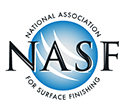EPA to Make Changes to Rollback of Clean Water Act Rule
EPA Announces it will make changes to Trump’s rollback of Obama’s Clean Water Act Rule defining which “Waters of the U.S.” are subject to regulation.
EPA chief Michael Regan in recent days announced the agency would embark on a major effort to overturn the Trump administration’s loosening of the Obama era “Waters of the U.S.” rulemaking. The Obama Administration’s measure in 2015 contained an expansive read of federal authority of a wide range of water bodies or “waters of the U.S.” (WOTUS) under the Clean Water Act). The Trump Administration repealed the 2015 Waters of the U.S. rule in 2019, and in June 2020, replaced it with the new Navigable Waters Protection Rule (NWPR). The NWPR narrowed the definition of waters of the U.S that were subject to federal authority under the Clean Water Act. The rules were the subject of substantial legal challenges. The Biden Administration identified the NWPR as a rule it intends to review and revise.
In recent congressional hearings, EPA Administrator Michael Regan said he doesn’t intend to go back to the Obama-era WOTUS rule. Specifically, he said that EPA does not intend to simply pull the Obama-rule off the shelf after the agency has learned so much over the years. Changes to the rule are anticipated because Regan indicated that agency officials are not quite satisfied that the WOTUS rule developed under the Trump Administration is as protective of water quality as it could be.
Regan indicated that EPA intends to set up a structured stakeholder engagement with industry, agriculture and environmental groups. Through this process, EPA officials will listen to those who are impacted by regulations in order to come to some conclusions on what is the best way to move forward to protect the nation’s water quality in a balanced way. Regan has acknowledged that EPA officials have learned lessons from both versions of the rule, have seen complexities in both approaches, and have determined that both rules did not necessarily listen to the will of the regulated community and public interests.
While the scope of change is not clear, EPA has clearly identified its intent to proposed a revised version of the WOTUS rule soon after a stakeholder engagement process. If you have any questions or would like additional information about the WOTUS rule development process, please contact jeff Hannapel at jhannpel@thepolicygroup.com.

This update is courtesy of the National Association for Surface Finishing (NASF). For more information or to become a member, visit nasf.org.
Related Content
-
OSHA, DOT and EPA Penalties Increase for 2023
The Department of Labor to revise civil penalty amounts for employer OSHA violations.
-
Conferences, Trade Shows, Tours and Events
Products Finishing rounds up some of its recent travels — from international trade shows to facility tours to legislative meetings regarding environmental regulations affecting the finishing community.
-
Bryan Leiker, MFACA, Discusses CARB Public Hearing Over Calif. Hex Chrome Ban
Bryan Leiker, executive director, Metal Finishing Association of California, offers a recap of a January 27, 2023, public hearing conducted by the California Air Resources Board prior to an impending ruling on a proposed ban of hexavalent chromium use for finishing operations in the state.









.jpg;maxWidth=300;quality=90)





